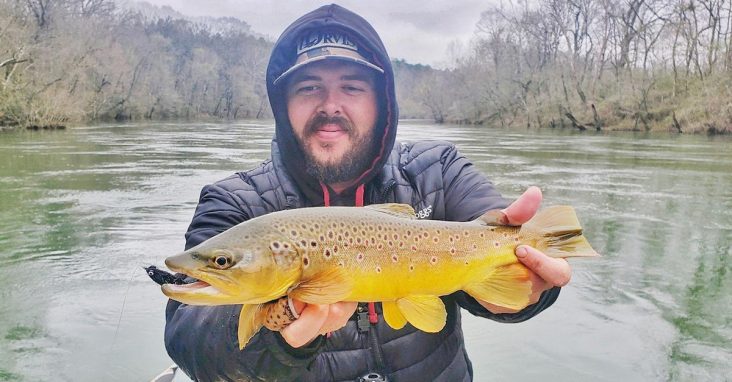Tourism officials say industry could benefit by catering more to those who hunt and fish
by March 3, 2021 4:12 pm 2,327 views

photo courtesy of Arkansas Tourism
From hunting to fishing to hiking and cycling, outdoor recreation is a big part of Arkansas, and that makes it an important part of the state’s tourism mix. Over the past year, according to the Arkansas Game and Fish Commission (AGFC), 43% of Americans over the age of 13 said they would do more outdoor activities due to the COVID-19 pandemic.
Across the nation, 133.3 million hunters, anglers and wildlife watchers spend about $156.9 billion annually on their activities. Nearly 24% of those people travel to other states for these activities, and that equals great opportunities for tourism, said Spencer Griffith, AGFC marketing manager during the Growing Tourism through Hunting, Fishing and Watchable Wildlife Recreation session of the Governor’s Conference on Tourism on Wednesday (March 3).
“Those are just possible tourism dollars to our communities if we can just attract some of them,” Griffith said.
Breaking things down, there are 363,786 anglers in Arkansas and 113,675 anglers traveling to Arkansas to fish. There are 221,972 resident hunters in the state and 72,231 hunters traveling to Arkansas to hunt. Visiting anglers come mostly from the border states of Texas, Tennessee, Mississippi, Oklahoma, Missouri and Louisiana, along with a great many trout angler from Chicago visiting the Natural State, Griffith said. Around 66% of these travelers come to Arkansas “just because they are wanting to fish,” he said.
“We feel like there is a great potential for growth in nonresident anglers,” Griffith said. “There is a healthy amount of people coming to Arkansas fishing first, and then looking to do other activities.”
Out-of-town anglers spend on average $222 a day. For every $1 spent, there is a $1.72 economic impact. Total expenditures made by nonresident anglers generated an economic output of more than $174 million annually, according to an AGFC report.
“The economic output in return for nonresident anglers is a huge impact to the state both in terms of local and state tax dollars as well as their total expenditures during the time they are here. They support a healthy job economy as well,” Griffith said.
Attracting anglers does not have to come from fishing tournaments, though Bill Solleder, director of marketing at Visit Hot Springs, said one of their most successful events is the Fishing League Worldwide (FLW) fishing tournament. Because almost half of residents (48%) anglers and many non-resident anglers are bank anglers, the potential of attracting them to area waterways is great.
“You don’t need a big nice fishing dock. You can have space off a trail that goes by the water that is cleared off and well maintained. There are some serious bank anglers who will travel,” said Jason Olive, AGFC assistant chief of fisheries.
Fishing tourism allows Arkansas the ability to capitalize on one of the best things it has to offer, which is a wide and varied diversity of waterways, including everything from deepwater reservoirs to swamps, rivers and streams to accommodate competition bass fishing, trout fishing and crappie fishing, said Rep. Carlton Wing, R-North Little Rock, and owner of Wing Media.
“It’s great for families. It’s great for anglers to be able to experience all these things,” Wing said. “So like an Arkansas Bass Trail, that could be huge. Not only for our resident fishing … but people come from all over the country to fish what we have here.”
Hunting also can be an important part of tourism in the state. Bethany Hildebrand, CEO and executive director of the Stuttgart Chamber of Commerce, said a big part of their economy is from the thousands of duck hunters who visit the area each year. The chamber partners with national brands to come up with attractive offers for hunters and it prints a Sportsman’s Guide that they can send through direct mailings to hunters eager to bring their tourism dollars to Arkansas, Hildebrand said.
The key for Arkansas cities is to have something for these visitors to do when they aren’t hunting or fishing and for the families they bring with them to do.
“When they get off the boat, what is there to do,” Solleder said.
Access to modern amenities and other activities along with the best of nature is a key to bringing the tourists to the state and the communities and cities in it, he said.
